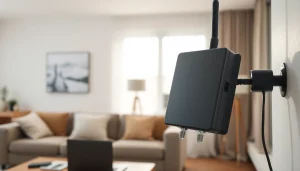
Understanding the Role of Direct Home Buyers
In today’s real estate market, homeowners seeking to sell their property face numerous challenges, from dealing with agents to navigating the complexities of traditional sales processes. One solution gaining traction is the rise of direct home buyers, who provide a streamlined alternative for selling homes quickly and efficiently. This article delves into the intricacies of direct home buyers, examining their operational methods, benefits, and the implications they carry for homeowners.
What are direct home buyers?
Direct home buyers are individuals or companies that purchase properties directly from homeowners, typically offering cash payments for the entire transaction. Unlike traditional real estate transactions that often involve real estate agents, multiple showings, and lengthy negotiations, direct home buyers simplify the selling process by providing a straightforward path from offer to closing.
These buyers can range from independent investors looking to renovate and resell properties to large investment firms that specialize in acquiring homes in bulk. Their appeal lies in the minimal barriers they present, allowing sellers to bypass many of the traditional hassles associated with selling a home.
How do direct home buyers operate?
The process initiated by direct home buyers is generally quick and requires minimal effort from the seller. Here is an outline of how this process typically unfolds:
- Initial Consultation: Homeowners often start by reaching out to a direct home buyer to discuss their property. This can usually be done online or over the phone.
- Property Assessment: The buyer typically conducts a brief assessment of the property, which may involve answering questions about its condition, size, and location.
- Cash Offer: After evaluating the property, the buyer presents a cash offer, often within 24-48 hours. This offer typically reflects the market value of the home, taking into account necessary repairs and renovations.
- Review and Acceptance: Homeowners can review the offer and decide whether to accept it without pressure. If accepted, the terms are negotiated, detailing timelines and conditions.
- Close the Sale: If the agreement is reached, the closing process usually takes place in a streamlined manner, often within a few days, allowing for a quick transition of ownership without the lengthy timelines typical of traditional sales.
Benefits of working with direct home buyers
Engaging with direct home buyers comes with several key advantages that can make a significant difference for homeowners looking to sell their property:
- Speed: One of the most significant benefits is the speed at which homeowners can sell their properties. Many direct home buyers can complete transactions within a week, appealing to those needing urgent sales.
- No Repairs Needed: Unlike traditional buyers, who typically seek move-in-ready homes, direct home buyers often purchase properties in their current condition, relieving sellers of the stress and expenses associated with repairs and renovations.
- No Commissions or Fees: When selling directly, homeowners can avoid paying agent commissions and closing costs, resulting in a higher net profit from the sale.
- Flexibility: Sellers have the flexibility to choose their closing dates, allowing them to coordinate their next steps more easily.
- Stress Reduction: The simplified process minimizes the stress often associated with selling a home, making it a more manageable experience.
Evaluating Your Home’s Worth
Before entering negotiations with direct home buyers, it is essential to understand your home’s worth. This knowledge empowers homeowners to assess the offers they receive while ensuring a fair deal is reached.
How to assess your home’s value before selling
Several methods can assist homeowners in determining the value of their property:
- Comparative Market Analysis (CMA): This method involves reviewing recent sales of comparable properties in the neighborhood. By examining size, age, condition, and selling price, homeowners can gain insight into a reasonable price range for their home.
- Online Valuation Tools: Many online platforms provide automated home values based on algorithms that analyze recent market trends. While these values can offer a rough estimate, they may not consider unique property nuances.
- Professional Appraisal: For an accurate assessment, consider hiring a licensed appraiser. Although this involves a cost, it’s often worthwhile for homeowners aiming to get the most out of the sale.
Factors affecting home value
Numerous factors can influence a home’s worth, including:
- Location: Properties in highly desirable areas typically command higher prices due to demand.
- Condition: The overall state of the home, including structural issues and aesthetic appeal, impacts its marketability and value.
- Market Trends: Economic factors and market trends can significantly influence property values. For instance, a strong local economy may inflate home values.
- Upgrades and Features: Recent renovations, modern appliances, and desirable features (like energy efficiency) can enhance a property’s appeal and increase its selling price.
Comparing offers from direct home buyers
When evaluating offers from direct home buyers, homeowners should consider various factors beyond just the cash offer amount. This ensures they choose the best option for their circumstances:
- Closing Timeline: Consider how fast each buyer can close the sale, particularly if time is of the essence.
- Contingencies: Review any contingencies attached to the offer, as these can impact the actual sale process.
- Cash Offer vs. Financing: Cash offers are typically more favorable given their swiftness and security compared to financed offers.
- Reputation of Buyer: Research the buyer’s history and reputation within the community, as this can influence the overall selling experience.
The Selling Process with Direct Home Buyers
Understanding the selling process with direct home buyers is crucial for homeowners. Knowing each step in advance can equip sellers with the knowledge needed to navigate this method confidently.
Steps to a successful sale
While the procedures tend to vary between buyers, some common steps include:
- Property Assessment and Offer: As previously discussed, this is where the buyer assesses the property and presents an offer.
- Negotiating Terms: Engage openly in negotiations to arrive at mutually beneficial terms that align with the seller’s expectations.
- Preparing for Closing: Once terms are agreed upon, begin preparing the necessary documentation, including ownership and property deeds.
- Closing Day: On closing day, ensure all paperwork is processed accurately, and receive payment as outlined in the agreement.
What to expect during negotiations
Negotiations with direct home buyers can represent a significant part of the selling process. Here’s what sellers can anticipate:
- Open Dialogue: Direct communication is vital. Sellers should feel comfortable expressing their needs and expectations.
- Counteroffers: Be prepared for negotiations. Buyers may make counteroffers, and having a clear understanding of what you want can streamline the process.
- Flexibility: A level of flexibility can be advantageous, as it may lead to a favorable outcome for both parties.
Closing the deal with direct home buyers
The closing process involves formalizing the sale and transferring ownership. Key points to remember include:
- Final Inspection: Some buyers may request a final walkthrough to ensure the property is in the agreed-upon condition.
- Documentation: Ensure all required documents are signed, including the title transfer and any other legal documents.
- Payment Transfer: Payment should be processed either during the closing meeting or shortly thereafter, depending on the agreement reached.
Addressing Common Concerns
While the concept of selling to direct home buyers is appealing, potential sellers may have concerns that need addressing. Understanding these can help make informed decisions.
Are direct home buyers legitimate?
Legitimacy varies by company and individual buyer. To verify credibility:
- Research: Check online reviews, ratings, and testimonials to gauge past seller experiences.
- Industry Associations: Seek buyers affiliated with reputable real estate institutions or organizations.
- Transparency: A reputable direct home buyer will provide clear information about their processes and any costs involved.
Potential pitfalls of selling to direct home buyers
While there are numerous benefits, there are also potential challenges, including:
- Lower Offers: Direct home buyers may offer less than market value, which can be a tough trade-off for quick sales.
- Scams: Risk of scams can emerge in any market. Recognizing red flags—such as overly complicated processes or a lack of transparency—can help protect against these risks.
- Pressure Selling: Some buyers may pressure sellers for a quick decision. Sellers should remain firm and take the time needed to assess any offers.
How to choose reputable direct home buyers
Choosing the right direct home buyers can significantly impact the selling experience. To find trustworthy buyers:
- Verify Credentials: Check for licenses, certifications, and positive ratings from past clients.
- Get Multiple Offers: Consult multiple buyers to compare offers and the terms attached, ensuring the best deal.
- Ask for References: Requesting references can give insight into previous seller experiences.
Success Stories and Testimonials
Real-life experiences can provide compelling evidence of the efficacy of working with direct home buyers, showcasing their positive impact on sellers. Here, we explore various success stories, illuminating how homeowners have benefited.
Real-life experiences with direct home buyers
Numerous homeowners have successfully leveraged the services of direct home buyers. These stories often share common themes:
- Quick Sales: Many sellers express relief at how quickly they could sell their homes, particularly during times of financial distress or pressing life changes.
- Smooth Transactions: Homeowners frequently appreciate the streamlined process, experiencing minimal stress compared to traditional sales methods.
- Financial Gains: Even if the sale price is lower than retail market value, the absence of repairs and commissions often results in a substantial financial gain.
How direct home buyers helped homeowners
Some notable outcomes shared by satisfied sellers include:
- Resolved Financial Burden: Homeowners facing foreclosure or other financial hardships found relief through quick sales, allowing them to eliminate debt and secure a fresh start.
- Inheriting Property: Families that inherited properties they couldn’t maintain had the opportunity to sell quickly and evenly divide proceeds among heirs.
- Relocation Assistance: Individuals and families relocating for work benefited from the swift process, eliminating the stress of managing two properties or making mortgage payments on an empty house.
Lessons learned from successful transactions
From these stories, several lessons emerge for potential sellers considering direct home buyers:
- Do Your Research: Take the time to vet buyers and understand their processes to ensure a positive outcome.
- Maintain Open Communication: Be clear with buyers about your expectations and desired timelines, facilitating smoother negotiations.
- Trust Your Instincts: If something feels off about a buyer or offer, don’t hesitate to seek other options.
In conclusion, the world of direct home buyers presents a viable alternative for homeowners looking to sell quickly and efficiently. By understanding the operational methods, evaluating property worth, and navigating the selling process with due diligence, homeowners can achieve successful transactions that meet their needs.






